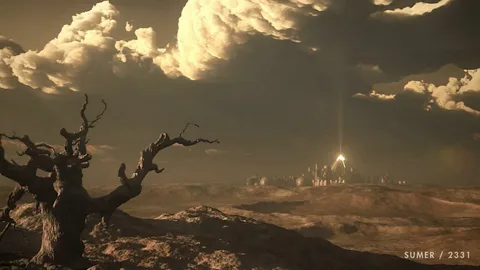how long did it take allah to create earth, In the realm of theology and divine creation, the question of how long it took Allah to create the Earth sparks curiosity and contemplation. Understanding this intricate concept requires delving into Islamic scriptures, exploring scientific perspectives, and navigating theological debates.
The Concept of Time in Islamic Perspective

The concept of time holds a profound significance in Islam, and the perception of time, especially in divine acts, may differ from the human understanding of it. In the Quran, the creation of the Earth is described in symbolic and metaphorical terms, prompting believers to reflect on the deeper meanings behind the verses.
In Islam, time is not merely a linear progression but a concept intricately tied to divine wisdom. Allah exists beyond the constraints of time as humans perceive it, and the Quran often uses allegorical language to convey profound truths.
Recommend: pharaoh in quran
The Creation of the Earth in Islamic Scriptures
The Quran provides insights into the creation of the Earth, detailing the process in verses that invite contemplation. It emphasizes the deliberate and purposeful nature of creation, urging believers to recognize the signs of Allah’s wisdom in the world around them.
how long did it take allah to create earth

The Quran mentions the creation happening in six days, but Islamic scholars debate whether these “days” are to be taken literally or metaphorically. Many argue for a metaphorical interpretation, suggesting that divine timelines may differ significantly from human understanding.
Scientific Interpretations and Views
The interpretation of the “six days” mentioned in the Quran is a subject of discussion among Islamic scholars. The relevant verses are found in various chapters, including Surah Al-A’raf (7:54), Surah Yunus (10:3), Surah Hud (11:7), Surah Al-Furqan (25:59), and Surah Qaf (50:38). These verses mention that Allah created the heavens and the earth in six days.
Islamic scholars generally agree that the reference to “six days” is not necessarily indicative of a human-like time frame. In Islam, Allah is considered beyond the limitations of time and space. The term “days” is understood metaphorically and is not necessarily equivalent to 24-hour periods as we experience them.
Interpretations among scholars may vary, but some common perspectives include:
- Metaphorical Interpretation: Many scholars interpret the “six days” metaphorically, emphasizing that Allah’s concept of time is different from human understanding. The mention of days is seen as a way to convey the sequence of creation rather than a literal measurement of time.
- Symbolic Interpretation: Some scholars view the “six days” as symbolic, representing stages or phases of creation. Each day may symbolize a specific aspect or step in the process of creation.
- Unknown Duration: Some scholars hold the view that the actual duration of the six days is known only to Allah. They assert that attempting to equate these days with human time frames would be a futile exercise due to the divine nature of creation.
- Literal Interpretation: While less common, there are scholars who interpret the “six days” more literally. They may argue that the term refers to specific time periods, the nature of which is known only to Allah.
It’s important to note that these interpretations are part of the broader field of Islamic exegesis (Tafsir), and scholars may differ on the finer details. The emphasis in Islam is often on understanding the deeper meanings and lessons conveyed by the Quran rather than strictly adhering to literal interpretations.
Read more: ayats about parents
Theological Debates and Interpretations
Within the Islamic theological community, there are diverse interpretations regarding the concept of time in divine actions. Some argue for a literal understanding of Quranic verses, while others emphasize the symbolic nature of the language used.
The Complexity of Creation
The intricate details of Earth’s creation underscore the complexity of divine acts. The concept of perplexity, where divine actions appear intricate and layered, adds depth to the understanding of creation in Islamic theology.
Human Limitations in Grasping Divine Concepts
The human mind has limitations in comprehending divine concepts fully. Acknowledging these limitations fosters humility, prompting believers to approach religious texts with a sense of awe and reverence.
Addressing Common Misconceptions
Misconceptions about the time frame of Earth’s creation abound. It is crucial to debunk these misconceptions, clarifying that certain Quranic verses are symbolic and not to be taken literally.
Read about: timeline of the prophets in islam
Seeking Spiritual Understanding
Beyond debates on timelines, believers are encouraged to seek spiritual understanding in creation stories. The focus should be on the profound messages these narratives convey, fostering a deeper connection with faith.
Recognizing that Earth’s evolution is an ongoing process aligns with both scientific discoveries and religious beliefs. Understanding the evolving nature of creation encourages believers to embrace a holistic view of the world.
Harmony between faith and science is possible. Integrating scientific knowledge with religious beliefs enriches the understanding of creation, showcasing the compatibility between the two realms of knowledge.
FAQs
Does Islam provide a specific timeline for the creation of the Earth?
No, Islam does not provide a specific timeline. The Quran uses symbolic language to convey the purposeful nature of creation.
How do Islamic scholars interpret the six days mentioned in the Quran?
Interpretations vary, with some taking it literally and others viewing it metaphorically as periods of divine action.
Can faith and science coexist in understanding Earth's creation?
Yes, many believe that faith and science can complement each other, offering different perspectives on the same divine truth.
Are there common misconceptions about the time frame of Earth's creation in Islam?
Yes, some misconceptions arise from taking certain Quranic verses literally, ignoring the symbolic nature of the language used.
Why is it essential to consider the context when interpreting religious texts?
Context provides a deeper understanding of the intended messages, preventing simplistic or misguided interpretations.
Conclusion
In conclusion, the question of how long it took Allah to create the Earth invites believers to explore the depth of Islamic scriptures, engage with scientific perspectives, and navigate theological debates. Embracing the complexity and burstiness of divine acts, while understanding human limitations, allows for a harmonious coexistence of faith and science.


